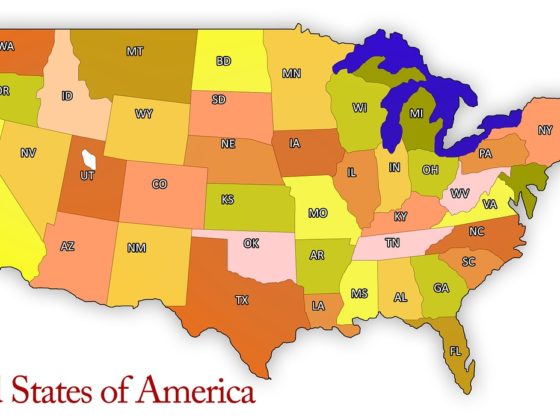Introduction
Many new eCommerce sellers are wondering if they should be running a sole proprietorship for their online business. In this article, we will discuss the definition of a sole proprietorship as well as pros and cons of running an eCom business under this structure.
When we create these kinds of articles, we are usually composing them in the form of Questions and Answers. It helps our readers better understand the concepts explained.
Sounds like a deal? Let’s begin.
What is the sole proprietorship business structure?
Sole proprietorship is a form of business structure that is completely inseparable from the business owner. You are married to your business and your business is married to you. The law sees you and your business as one entity. There is no separation of assets and responsibility for this business structure.
Can I run my eCommerce business as a sole proprietor?
Yes. For example, you can register on both amazon.ca or amazon.com as a sole proprietor. You can also open separate bank accounts, deal with suppliers and correspond with the CRA as a sole proprietor.
Can I run an eCommerce store under a trading name?
Yes. You may choose to operate your eCommerce store under an operating or a trading name. Most provincial and state jurisdictions will require you to register that trading name so that all your activity can be properly tracked. You will also need to report that trading name to tax authorities (e.g. Canada Revenue Agency or Internal Revenue Agency).
Note that even if you register your business under a trading name, it will still be inseparable from you for legal and tax purposes.
What are the advantages of running a sole proprietorship for an eCommerce business?
The main advantage of running a sole proprietorship is simplicity. In most jurisdictions in Canada, you can even operate your business under your own name, without registering for a business license. Some very small sole proprietors even choose not to open a separate business account (which we don’t recommend, of course).
The simplicity results in lower accounting and operating fees since everything is run under one entity. Many new business owners start operating a sole proprietorship to keep things simple. After their business gains traction, they incorporate and start operating as a corporation.
What are the disadvantages of running a sole proprietorship for an eCommerce business?
While there are some advantages to running a sole proprietorship, there are some major drawbacks that you need to consider before running your business under this structure.
- Since many sole proprietors do not separate their business records from personal ones they have a hard time producing financial statements for their business at the tax season
- Sole proprietorships have limited tax planning options
- Sole proprietorships pay double amount of Canada Pension Plan premiums (CPP)
- Since you and your business are seen as one business entity, there is an unlimited business liability. You are practically putting all your personal assets on the line when you are running your eCommerce business as a sole proprietorship
When should I incorporate my sole proprietorship eCommerce business?
Generally, we recommend incorporating when:
- You don’t need all business income for personal expenses
- Have personal assets to protect
- Are willing to pay higher accounting and tax fees for maintaining a corporation
- Have business partners or family members who want to participate in the business
We discuss the pros and cons of corporate and other business structures for eCommerce sellers in this article.
Tax Questions from eCommerce Sellers
What are the Canadian income tax consequences of running a sole proprietorship for an eCommerce business?
If you run a sole proprietorship, the net income from your business activities is added to your personal income on the T1 form. Sole proprietors are filling out the T2125 form to report income and expenses from their business activities.
Your net income is also subject to the employer portion of Canada Pension Plan contributions. It results in the double rate of CPP payable to the government on the net sole proprietorship income.
What are the deadlines to file income tax returns for a sole proprietorship in Canada?
You would need to file by the June 15th of every year. If you expect to owe any taxes, they should be remitted to the CRA by the April 30th to avoid additional interest charges.
What are the deadlines to file income tax returns for a sole proprietorship in the U.S.?
If you determine that you need to file your taxes in the U.S., you would need to file forms 1040NR + Form 8833 by the June 15th.
Is there any difference in the types of expenses I can deduct for my sole proprietorship?
No. Generally, businesses can deduct all business expenses that were used to generate business income, regardless of the business structure they operate under. We have compiled a long detailed list of CRA approved small business tax deductions in this article.
Is there any difference in the way sales taxes are applied to sole proprietorships?
Canadian sales tax regulations are applying equally to all business structure regardless of the entity type. For example, you would need to collect GST/HST on your Canadian sales if your business revenue exceeded $30,000 CAD in the last four consecutive quarters, regardless if you operate a sole proprietorship, corporation, or a partnership.
We have discussed the Canadian sales tax application in detail in this article.
When should I register for a business number with the CRA?
You should register for a business number and specific business accounts with the CRA when your business is:
- Hiring and paying employees on your payroll account
- Exceeding $30,000K in sales in the last four quarters and needs to start collecting GST/HST sales taxes
- Importing exporting goods into Canada
You may also voluntarily register on the CRA website for a business account for any of those accounts. Note that when you register, the CRA will be expecting your business to start submitting filings and reports for each account. So, we only recommend registering when your sole proprietorship is required to register.
What are the tax consequences of selling as a sole proprietorship in the U.S.?
Similar to the Canadian jurisdiction, eCommerce sellers who operate under the sole proprietorship business structure in the U.S. will be considered to be doing business under the personal names.
You may hear the term “disregarded entity” from some banks or authorities. The term means that even if you operate under a trading name your business is still inseparable from you for legal and tax purposes.
If you are earning effectively connected business income in the U.S. you will also be obligated to file personal tax returns for your business with the Internal Revenue Agency. However, you won’t be liable for any tax consequences under U.S.-Canada tax treaty, if you don’t have a permanent establishment in the U.S.
You can read more on the tax consequences of running an eCommerce business in the U.S. for in this article.
Accounting Questions from eCommerce Sellers
What are the average accounting fees for an eCommerce business running under sole proprietorship?
You would be looking at accounting fees ranging from $200 – $500 CAD + GST/HST depending on the accountant you work with and the complexity of the tax return.
What is the best accounting software to run for a sole proprietorship?
We recommend any cloud accounting software that supports the following features:
- Connections of multiple bank accounts
- Multi-currency support
- Receipt management
- Sales tax reporting
- Tracking of income and expenses
The two biggest accounting software apps, Quickbooks Online and Xero, offer various packages that include one or more of these functionalities.
Needless to say that we also strongly recommend opening separate bank and credit card accounts to avoid mixing personal and business expenses. You also need to keep copies of original receipts for 6 years in case you will get audited by the CRA.
Are you accepting new eCommerce clients?
You can reach out to us with on the contact page with your details. We will get back and let you know if we can help.





